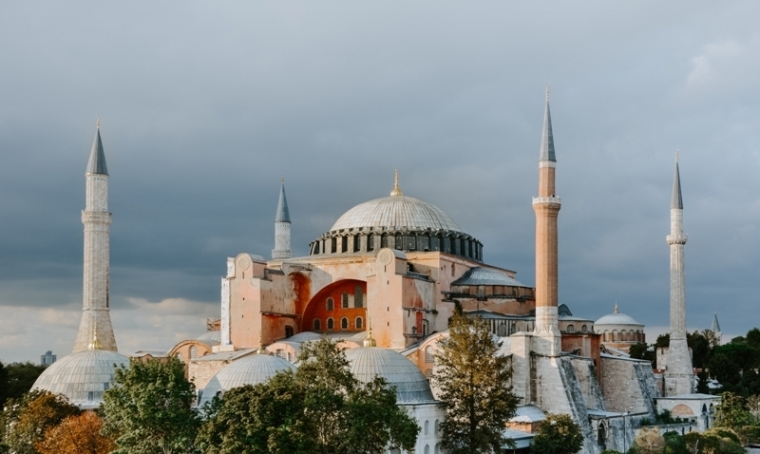
In my last article I wrote about persecution of Christians in the world today, with just a few examples. I would like to continue this as an occasional series, highlighting persecution in some areas of the world and at home and urging readers to pray for these brothers and sisters.
Persecution is not restricted to being thrown in prison for your beliefs or being physically abused. The two examples below highlight some different forms that persecution can take and reinforce the fact that we are in a spiritual battle.
Indonesia
The dominant ethnic group in West Sumatra is the Minangkabau, which is 99.72% Muslim and 0.26% Christian. Indonesia’s constitution, 'Pancasila', guarantees the right for religious freedom, meaning that any holy books may be translated into every language and individuals are free to observe their beliefs as long as they do not cause disruption in public.
On 3 June 2020 Indonesia's Communication and Information Minister removed a Bible app - 'Kitab Suci Injil Minangkabau' [The Bible in Minangkabau language] - from the Google Play Store at the request of West Sumatra governor, Irwan Prayitno. Backed by the Indonesian Ulema Council (MUI, Indonesia's top body of Islamic clerics), Irwan insisted that the Bible app is offensive to the Minangkabau, whose culture is based on Sharia and the Quran, not the Bible.
This move clearly contradicts the philosophy of the constitution, according to the deputy head of the Agency for Pancasila Ideology Education, Hariyono. Far from posing a threat, the local language Bible app is helpful for advancing tolerance.
As fundamentalist Islam has taken root and spread throughout West Sumatra, Christian persecution has escalated. In recent years Minang Christians have experienced difficulties establishing churches or even celebrating Christmas at home.
Turkey
Hagia Sophia (pictured above) has had a checkered history: it began as the Greek Orthodox Christian patriarchal cathedral (completed in AD537), later it became an Ottoman imperial mosque (from 1453) and now (from 1935) it is a museum in Istanbul, Turkey. UNESCO has declared it a World Heritage site. Hagia Sophia means “Holy Wisdom”, or in Greek it expands to “Shrine of the Holy of God”.
Friday 29 May is 'Conquest Day', the day Muslim Turks celebrate the Ottoman conquest of the Byzantine capital, Constantinople, which fell to Muslim forces on 29 May 1453. However today it has become a day which glorifies and celebrates Islamic imperial expansion and military aggression (Islamic jihad); conquest and occupation; the seizure of 'booty' and the slaughter, enslavement and subjugation of infidels (Christians) in a demonstration of Muslim supremacy.
On Friday 29 May 2020, Turkish President Erdogan allowed Islamic prayers to be performed and Quranic verses to be recited inside the Hagia Sophia as part of Conquest Day celebrations. This contravenes the World Heritage status (ie a religiously neutral museum) of the building and is an attempt to change the status of the building to promote Islam.
The ‘Conquest Day’ can no longer be viewed as a Remembrance Day where war and death are lamented, but as a celebration of the enslavement of 30 000 Christians and slaughter and rape of thousands of other citizens.
Various Christian advocacy groups have called upon UNESCO to respond to Turkey’s drive to violate Hagia Sophia’s heritage status and convert it to a mosque. It is part of Turkey’s continuing strategy to erase the vast cultural and religious heritage of Armenians, Greeks, Assyrians and other now-exiled indigenous Christian nations across the territory of modern-day Turkey.
We can expect an escalation of Christian persecution because Erdogan has “stoked the fire of Islamic zeal among his neo-Ottoman Islamist supporter base”.
So how do we pray?
That we need to pray for these situations around the world is, I believe, a given. The enormity of these situations is overwhelming, and our prayers may sometimes feel impotent as we wonder how to pray, and maybe lack confidence that our prayers may not be enough. But that is surely a ploy of our enemy.
If we sit with the Lord and wait for Him to show us, we will discern His heart and our prayers will have power. The following are suggestions from Christian Faith and Freedom:
For the churches in Indonesia and Turkey, let us pray that the Christian pastors and leaders (civic and religious) might be filled with 'the knowledge of his will in all spiritual wisdom and understanding, so [they might] walk [and lead] in a manner worthy of the Lord, fully pleasing to him ... being strengthened with all power, according to his glorious might, for all endurance and patience with joy ...' (from Colossians Chapter 1, verses 9-14 ).
Let us also pray that Almighty God will protect, sustain, preserve and richly bless his precious Church in Turkey comprising (among others) remnant Greeks, Armenians and Assyrians as well as convert Arabs, Kurds and Turks; may the Church grow in unity, faith and grace to be a light that overcomes darkness and a voice of hope that counters despair.
And that God might intervene in Indonesia and Turkey and, in grace and mercy, by the power of his Holy Spirit, produce awakening and transformation beyond anything we could ever imagine (Ephesians Chapter 3, verses 20-21).

Aira Chilcott is a retired secondary school teacher with lots of science andtheology under her belt. Aira is an editor for PSI and indulges inreading, bushwalking and volunteering at a nature reserve. Aira’s husband Bill passed away in 2022 and she is left with three wonderful adult sons and one grandson.
Aira Chilcott's previous articles may be viewed at http://www.pressserviceinternational.org/aira-chilcott.html